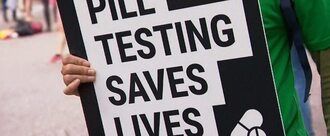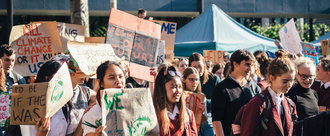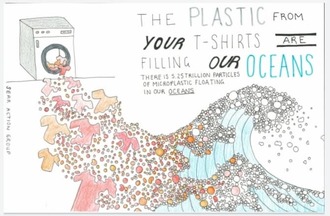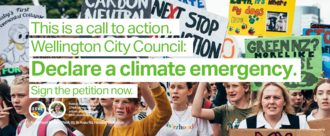-
GDC - Declare a Climate EmergencyThis is a call to action for our representatives to declare a climate emergency for Gisborne and to take decisive action. Climate breakdown is a challenge for all humanity, but it is also our biggest opportunity. By declaring a climate emergency we can ensure our representatives make the necessary decisions in time to save our local ecosystems and our planet. The effects of climate change strike to the heart of our communities and will have a major impact on local schools, residents, and businesses. We need urgent and strategic from our local council representatives to address the challenge seriously. We have the means and access to resources to transition, and we also have an obligation to countries worst affected by climate change. Climate breakdown is challenging, but by decarbonising our economy, we will create more time for doing the things we love, with the people we love, in the nature we love. It will mean working less and sharing more. Driving less and cycling more. Polluting less and planting more. A shift away from our consumer culture to re-invigorating community will mean we get to spend more time gardening, cooking, learning, reading, sharing, laughing, dancing, and singing together instead of spending hours on social media, or money on things we don’t need, for connection and validation. It will mean paying the people who work in low-carbon jobs such as caregiving, teaching, nursing, healing, and restoration generously instead of bankers, polluters and corporate billionaires extracting all the wealth from the rest of us and our Earth. In taking decisions we urge council members to consult with local Iwi within Ngati Porou and Turanga-Nui-A-Kiwa rohe at all times. We support the call of the National Māori Climate Network for urgent action. We can create a green and beautiful future, we just need to have the courage to take action, and we ask our representatives to show us the way. We can be leaders in the climate action space and set an example for other councils, and the country, to follow. Read and sign 'An Open Letter from the Youth of Aotearoa' by School Strike 4 Climate NZ here: https://our.actionstation.org.nz/petitions/climate-declaration-from-the-youth-of-aotearoa-21,294 of 2,000 SignaturesCreated by Maia Ingoe
-
Greater Wellington Regional Council - Declare a Climate EmergencyThis is a call to action for our representatives to declare a climate emergency for the Wellington Region and to take decisive action. Climate breakdown is a challenge for all humanity, but it is also our biggest opportunity. By declaring a climate emergency we can ensure our representatives make the necessary decisions in time to save our local ecosystems and our planet. The effects of climate change strike to the heart of our communities, and will have a major impact on local schools, residents, and businesses. We need urgent and strategic from our local council representatives to address the challenge seriously. We have the means, and access to resources to transition, and we also have an obligation to countries worst affected by climate change. Climate breakdown is challenging, but by decarbonising our economy, we will create more time for doing the things we love, with the people we love, in the nature we love. It will mean working less and sharing more. Driving less and cycling more. Polluting less and planting more. A shift away from our consumer culture to re-invigorating community will mean we get to spend more time gardening, cooking, learning, reading, sharing, laughing, dancing, and singing together instead of spending hours on social media, or money on things we don’t need, for connection and validation. It will mean paying the people who work in low-carbon jobs such as caregiving, teaching, nursing, healing, and restoration generously instead of bankers, polluters and corporate billionaires extracting all the wealth from the rest of us and our Earth. In making decisions we urge council members to consult with mana whenua at all times. We support the call of the National Māori Climate Network for urgent action. We can create a green and beautiful future, we just need to have the courage to take action, and we ask our representatives to show us the way. We can be leaders in the climate action space and set an example for other councils, and the country, to follow. Read and sign 'An Open Letter from the Youth of Aotearoa' by School Strike 4 Climate NZ here: https://our.actionstation.org.nz/petitions/climate-declaration-from-the-youth-of-aotearoa-269 of 100 SignaturesCreated by Sophie Handford
-
Tasman District Council - declare a climate emergencyThis is a call to action for our representatives to declare a climate emergency for the Tasman district and to take decisive action. Climate breakdown is a challenge for all humanity, but it is also our biggest opportunity. By declaring a climate emergency we can ensure our representatives make the necessary decisions in time to save our local ecosystems and our planet. The effects of climate change strike to the heart of our communities, and will have a major impact on local schools, residents, and businesses. We need urgent and strategic from our local council representatives to address the challenge seriously. We have the means, and access to resources to transition, and we also have an obligation to countries worst affected by climate change. Climate breakdown is challenging, but by decarbonising our economy, we will create more time for doing the things we love, with the people we love, in the nature we love. It will mean working less and sharing more. Driving less and cycling more. Polluting less and planting more. A shift away from our consumer culture to re-invigorating community will mean we get to spend more time gardening, cooking, learning, reading, sharing, laughing, dancing, and singing together instead of spending hours on social media, or money on things we don’t need, for connection and validation. It will mean paying the people who work in low-carbon jobs such as caregiving, teaching, nursing, healing, and restoration generously instead of bankers, polluters and corporate billionaires extracting all the wealth from the rest of us and our Earth. In taking decisions we urge council members to consult with mana whenua at all times. We support the call of the National Māori Climate Network for urgent action. We can create a green and beautiful future, we just need to have the courage to take action, and we ask our representatives to show us the way. We can be leaders in the climate action space and set an example for other councils, and the country, to follow.319 of 400 SignaturesCreated by Shay O
-
Hamilton City Council- declare a climate emergency!Declaring a climate emergency is essential if we wish to survive. The effects of climate change are already becoming evident in our everyday lives with the rising sea-levels, higher temperatures, more frequent extreme weather events such as flooding and droughts and the change in the rainfall patterns (more summer rainfall for North Island, and more winter rainfall for South Island.) This has a huge impact on biodiversity in New Zealand, our Agricultural businesses such as Dairy Farming and Fruit and Vegetable farming and also effects average household and business costs causing our economy to fluctuate. It is likely that Climate Change will kill us, sooner than you may think. And it's not just us. It's every single living thing on this earth. Everything will be at risk causing a Mass Extinction of millions of species. It will be like what happened to the dinosaurs but slow, painful and a heck of a lot worse. Declaring a Climate emergency now will safeguard a future for your children, grandchildren and many future generations to come.1,362 of 2,000 SignaturesCreated by Bridie Case-Miller
-
Urgent Royal Commission of Inquiry into Oranga Tamariki - Ministry for Children - formerly CYFSWhen the Oranga Tamariki Act 1989 (Children, Young Persons and Their Families Act 1989) was introduced it was seen to be world-leading child welfare legislation. The Act impacts on the lives of thousands of children, young people and their families. The Act introduced major changes to the way decisions were made about children and young people who were victims of abuse and neglect or who broke the law, and placed New Zealand at the forefront of international legislative best practice. The Act determines how the state intervenes to protect children from abuse and neglect, and to prevent and address child and youth offending. It represents how well our society cares for and supports our children and young people. The Act introduced principles that changed the way decisions were made about children and young people, enabling family to become partners in the decision-making process to resolve family issues. Fundamental to the Act was the incorporation and inclusion of families throughout the process of making decisions in matters of care and protection of children and young people, and offending by young people. New Zealanders were shocked by the coverage of an attempted uplift of a baby by Oranga Tamariki at Hawkes Bay hospital on 6 May 2019, what has come from this coverage has been an outpouring and ground swell of information from traumatized parents, grandparents, families and their children of their experiences dealing with Oranga Tamariki and the NZ Family Court. There is also a direct correlation between Oranga Tamariki, the NZ Family Court and our mental health and suicide crisis across our nation. The trauma experienced by those who have been engaged and under the care of Oranga Tamariki (CYFS), the NZ Family Court must be acknowledged and addressed. There needs to be independent investigations into the conduct, culture, processes and policies of Oranga Tamariki, the effect of the NZ Family Court processes and the impact of child removal on the wellbeing of our nation. An urgent Royal Commission of Inquiry must be established with wide ranging powers including referring suspected criminal offending by staff to the Police, Crown, or Solicitor General for prosecution. https://www.newsroom.co.nz/ot-reaction Melanie Reid and Bonnie Sumner for Newsroom - 4 July 2020 https://www.newsroom.co.nz/investigations/nzs-own-taken-generation Melanie Reid for Newsroom - 11 June 2019 https://www.newsroom.co.nz/oranga-tamariki-running-for-cover Vivienne Martini for Newsroom - 25 February 2020 https://www.newsroom.co.nz/oranga-tamariki-braces-for-more-bad-news Melanie Reid & Bonnie Sumner - 30 July 2020 https://www.newsroom.co.nz/another-damning-report-on-ot-taking-babies Tim Murphy for Newsroom - 6 August 2020 https://www.tvnz.co.nz/one-news/new-zealand/uplift-investigation-highly-critical-inaction-and-lack-capacity-oranga-tamariki#_=_ Anna Whyte 1 News 6 August 2020 https://www.ombudsman.parliament.nz/resources/he-take-kohukihuki-matter-urgency?fbclid=IwAR1U8588YV1rnnUEVQt9BcfV6yp3WokOi2mUitfCW37WCVvNq2_zSyONYas He Take Kōhukihuki | A Matter of Urgency - Office of the Ombudsman - 6 August 20205,878 of 6,000 SignaturesCreated by Lou Hutchinson
-
Remove Oranga Tamariki as the name for CYPFsOranga is a kupu which implies wellness - culturally the fact that this Ministry uses kupu Maori is distasteful given the bullying tactics used to remove Maori mokopuna and tamariki from their families without engaging with the whanau.12,429 of 15,000 SignaturesCreated by Carolyn Hopa
-
Porirua City Council - take climate actionThis is a call to action for our representatives to declare a climate emergency for Porirua city and to take decisive action. Climate breakdown is a challenge for all humanity, but it is also our biggest opportunity. By declaring a climate emergency we can ensure our representatives make the necessary decisions in time to save our local ecosystems and our planet. The effects of climate change strike to the heart of our communities, and will have a major impact on local schools, residents, and businesses. We need urgent and strategic action from our local council representatives to address the challenge seriously. We have the means, and access to resources to transition, and we also have an obligation to countries worst affected by climate change. Climate breakdown is challenging, but by decarbonising our economy, we will create more time for doing the things we love, with the people we love, in the nature we love. It will mean working less and sharing more. Driving less and cycling more. Polluting less and planting more. A shift away from our consumer culture to re-invigorating community will mean we get to spend more time with our whānau gardening, cooking, learning, reading, sharing, laughing, dancing, and singing instead of spending hours on social media, or money on things we don’t need, for connection and validation. It will mean paying the people who work in low-carbon jobs such as caregiving, teaching, nursing, healing, and restoration generously instead of bankers, polluters and corporate billionaires extracting all the wealth from the rest of us and our Earth. In taking decisions we urge council members to consult with mana whenua of Ngāti Toa Rangatira at all times. We support the call of the National Māori Climate Network for urgent action. We can create a green and beautiful future however we just need to have the courage to take action, and we ask our representatives to show us the way. Porirua city can be be part of cities like Nelson, Kapiti and Auckland declaring climate emergencies however this can only be done through your voice. The rangatahi of Porirua are calling for the people who represent us to fight for the future because if they do not, we will not be able to live it. Porirua is our home and we need to protect it for generations to come. Sign this petition for our future, karawhiua e te iwi!! Read and sign 'An Open Letter from the Youth of Aotearoa' by School Strike 4 Climate NZ here: https://our.actionstation.org.nz/petitions/climate-declaration-from-the-youth-of-aotearoa-2409 of 500 SignaturesCreated by Piata Hohaia
-
Legalize Drug Testing at Festivals/ConcertsCurrently if festival/concert organisations allow the testing of drugs to occur in their premises, they are technically breaking the law and can be prosecuted. If organisations are able to apply for a permit to legally conduct drug testing at their premises - more festivals and concerts will do so thus ensuring the safety of drug users at festivals. There is widespread information and data to prove that more harm is done from the intake of a mixture of unknown substances by drug users, than the actual intended drug itself. Drugs that are illegally sold to people in NZ may contain other unknown toxic substances, an unexpected high dosage - which can both be deadly, particularly when mixed with other substances such as alcohol. The drugs commonly used at festivals and concerts including LSD and MDMA, can consist of other more toxic or dangerous drugs that have similar effects to MDMA/LSD. The actual drugs themselves have a low risk of causing deadly effects to its users (however they are not completely harmless) when used in regulated and controlled environment. However, the impurities in these drugs from the black market and mixing with other substances (alcohol) increase the risk of deadly effects greatly. The additives and substitutes found in pills (including PMA, N-Ethylpentylone, NBOMes, Fentanyl) make the substance much more toxic and easier to overdose, and can have deadly effects such as heart attack, renal failure and stroke. The amount of people whose deaths are caused by party drugs are actually comparatively lower than that caused by alcohol, heroin and other substances. However, the public views them as causing more harm than they actually do, as media displays more incidents caused by them than other drugs. Statistics (on KnowYourStuff.org) also show that people are less likely to consume their drug after having it tested and finding the substance(s) it contains, is not what they presumed it to be. Thus reducing the potential number of hospitalisations and dangerous effects. In Australia, festivals have found that introducing drug testing at their events have resulted in a reduction of hospitalizations by 95%. At the Groovin Moo festival in Canberra last year, drug testing revealed that 84% of people who had their substances analyzed thought that they contained MDMA, but in fact only 51% actually contained any MDMA at all. It will also allow festival goers who have had their drugs tested to be given an identification card - so if they run into medical trouble during their time at the event medical staff are able to quickly identify what they have taken. https://www.stuff.co.nz/national/health/109699570/independent-drugtesting-tents-at-festivals-a-fantastic-idea-says-police-minister-stuart-nash https://thespinoff.co.nz/science/23-01-2019/what-are-the-health-risks-in-taking-ecstasy/ https://www.stuff.co.nz/national/health/109745413/pill-testing-what-drug-tests-and-festivals-do-and-why70 of 100 SignaturesCreated by Isobel Forde
-
Hamilton: Our Climate ActionsWe are committed to the relationships and responsibilities enshrined in Te Tiriti o Waitangi including a commitment to ensuring the rights of mana whenua as kaitaki. The proposed “Climate Change Declaration Act” was signed by 54 mayors and council chairs, yet, Hamilton remains absent from the list of signatures. On the 24th of May, we struck from our schools to show the Hamilton City Council and Parliament the urgency that climate action requires. The latest IPCC report makes it clear that a 1.5 °C rise, will lead to widespread suffering, mass migration, irreversible damage to the natural world, and massive damage to the world economy. The earth’s average temperature has already risen 1 °C. A recent study from ESD has calculated a “Point of no return.” After we cross this point, keeping the earth’s temperature from rising 2 °C, the tipping point of irreversible damage, will be “almost impossible.” The “Point of no return” in question is the year 2029. 10 years from now. We are in a state of climate emergency. We need strong leadership from local government to signal to all Hamiltonians - businesses, communities, institutions and individual citizens that significant action must be taken now. By signing this petition I am showing you my need for immediate climate change action to be taken. Here is the link to the full petition: https://docs.google.com/document/d/1VL4Y8RSfbHQ6CK9ThYWKfOCUtbjAomErcXpR2VSRAuA/edit?usp=sharing162 of 200 SignaturesCreated by Environment Leaders
-
Stop Microfiber PollutionSynthetic fibers, such as polyester, nylon and acrylic, make up 60% of the clothing material used in the fashion industry worldwide. These fibers are used as a cheap source of material for fast fashion businesses and although the clothing produced from these materials are usually low quality, these materials have made their way into everyone's wardrobe. However, the harmful environmental impacts around clothing made from synthetic fibers have become an undiscussed topic of environmental issues currently occurring on our planet. These synthetic materials are man-made, where polyester for example is made from petroleum. The recent report form Tearfund explains that more than 70 million barrels of oil is used to create polyester each year, which is extremely carbon-intensive as it is a non-renewable resource. As these synthetic fibers are essentially made from plastic, it is non-biodegradable meaning every single micro plastic produced to create these fibers will stay on our planet forever. Producing polyester also uses harmful chemicals which can be emitted into the air and water, leading to damage the environment as well as our own health. Items of clothing made from polyester, acrylic and nylon have plastic microfibers, and with each wash these plastic fibers shed off from the clothing to make their way from washing machines into our oceans. Unfortunately, sewage treatment plants can not effectively filter these microfibers. This leads to microfibers currently being recognised as one of the biggest sources of microplastic pollution currently in our oceans. A single polyester garment can release up to 1900 microfibers in one wash. When you add this all up, it is currently estimated that 5.25 trillion microfiber particles are currently in our oceans, with an increase of 6.4 million tons of microfibers entering our oceans each year. This further poisons the food chains, as these fibers are consumed by fish and wildlife which is extremely harmful to their health, and it can also lead for humans to ingest these fibers ourselves. It is estimated that people who eat seafood ingest 11,000 microplastics each year. We need to switch to more sustainable methods of living if our oceans, our wildlife, our planet our own lives are going to make it to the end of the century. Join us in this movement, let’s make change together #stopmicrofibers - SEAR Action Group564 of 600 SignaturesCreated by SEAR Action Group

-
Declare a climate emergencyClimate breakdown is the greatest challenge we have ever faced. We need united action from our political leaders to acknowledge and address this challenge to be able to transition our economic system to one that nurtures the planet, and not destroys it. By declaring a climate emergency we can ensure necessary changes are moved up the priority list and actions taken in time to turn the tide on what will otherwise be inevitable disaster for our planet. Sign this petition to urge the Government to urgently declare a climate emergency and allocate resources and get on with the work needed to protect our future. Donate a lunchtime In addition, if you are the thousands of people who work in the Wellington CBD, you can help in another way. Join the lunchtime vigil whenever you can! Every lunchtime, every day of the week, stand together in silent vigil in front of the Beehive on the lawn, even just for a few minutes of your time. No megaphones, no chanting, no disruption, just a show of force in numbers for the benefit of future generations. https://www.stuff.co.nz/environment/climate-news/112826745/parliaments-lone-protester-will-be-on-its-lawn-until-a-climate-emergency-is-declared212 of 300 SignaturesCreated by Ollie Langridge
-
WCC - Declare a Climate EmergencyClimate Change is the largest issue to ever face humanity. We need action from our local council in this area.This is a critical to the whenua and people of Te Whanga-nui-a-Tara (Wellington). “This move will set the narrative for the urgent pace of which we need to act on climate change but must uphold our democratic systems and obligations under Te Tiriti o Waitangi. We need to ensure we are doing everything in our power to safeguard our future”- Molly Doyle. Read 'An Open Letter from the Youth of Aotearoa' by School Strike 4 Climate NZ here: https://our.actionstation.org.nz/petitions/climate-declaration-from-the-youth-of-aotearoa-2#_=_389 of 400 SignaturesCreated by Teri O'Neill

.jpg)
.jpg)


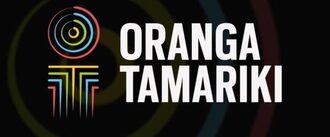

.jpg)
